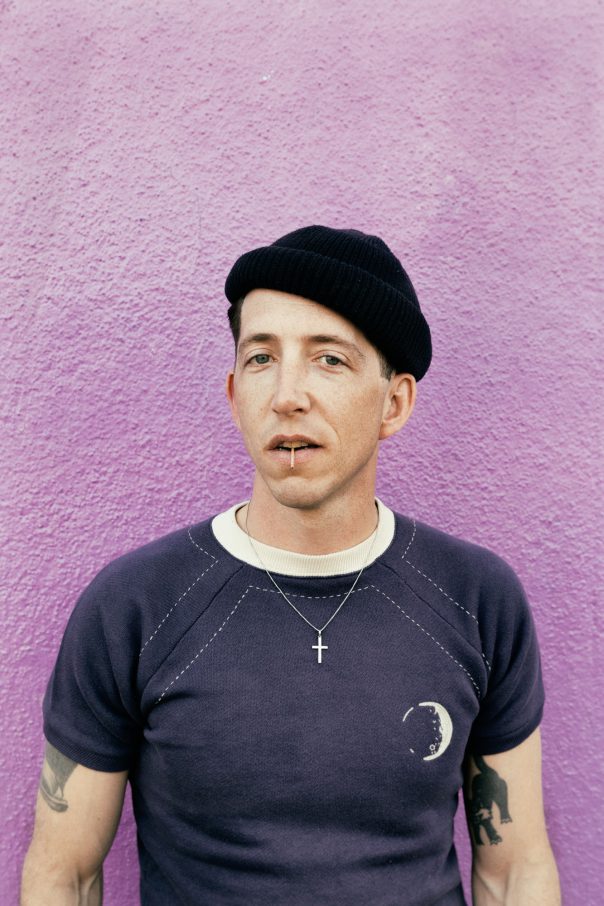INTERVIEW: Pokey LaFarge shows his lighter side on ‘Blossom of Their Shade’

Pokey LaFarge, courtesy.
On his seventh album, In the Blossom of their Shade, Pokey LaFarge and his band deescalate the intensity of his last two albums. The emotional highs of 2017’s Manic Revelations and 2020’s Rock Bottom Rhapsody came at a cost to the songwriter, who was hitting personal lows at the time.
Blossom of Their Shade
Pokey LaFarge
New West, Oct. 15
“Rock Bottom Rhapsody was very much written from a place of a person sort of perishing in darkness,” LaFarge said. “Having come out of that, since the writing of that record and ultimately the recording of the record, I was in a much different state of mind once that record was released.”
Speaking from his Los Angeles home after a European tour was canceled due to the resurgence of the coronavirus Delta variant, he said that with In the Blossom of Their Shade, he wanted to write a record coming from a place of being “in the light and of peace”—of “intentionally projecting love, and putting that out there in the world.”
Pokey LaFarge presents the outcome of renewed faith, sobriety and commitment to putting his gifts in service of others. Written and recorded in 2020, the result is far from white-knuckled. It’s as playful as anything he’s done. Spreading joy takes precedence over rendering heartbreak. Those who love his breakup songs won’t completely come up short (“Drink of You” fits the bill). But it’s overall a push in new directions with an upbeat tone.
The sense of a sultry summer afternoon—the album was nearly called “Siesta Love”—comes through on tracks like “Mi Ideal” and “Yo-yo,” which feature Latin influences. It’s a new turn for LaFarge, who moved to Los Angeles a few years ago. He acknowledged that he’s always embraced his location as a musical inspiration. Before, he represented his native Midwest and the styles of music that flourished on the Mississippi River. At the same time, he started writing the album in Texas, recorded in Chicago and only produced it in L.A.
The physical location is not the only inspiration. The sounds of In the Blossom of Their Shade owe as much to his wandering imagination as to anything else.
“A lot of what I’ve always done has definitely had a strong element of escapism. It’s about pursuing places and states of mind that I don’t currently reside in. It’s more about writing from a dream state,” he said.
His listening habits, also an inspiration, have changed a lot over the years.
“I’ve traded out a lot of the traditional jazz ’20s and ’30s blues years ago, for more roots reggae, rocksteady music,” he said. “And a lot of different Caribbean music, South American music, Mexican music, African music. And also a lot of the chanson singers from France, as well as, even more recently, kind of a borderline obsession with Italian music from the ’60s.”
In the Blossom of Their Shade is the first album that LaFarge has produced on his own. He orchestrated contributions from some of the same players he’s worked with before, most of them in Chicago: sound engineer and multi-instrumentalist Alex Hall; Scott Ligon on guitar, keys and vocals; bassist Beau Sample ; Doug Corcoran of JD McPherson’s band on piano and lap steel guitar; and guitarist Joel Paterson.
“Those guys can do anything,” he said.
His fans won’t find a complete abandonment of the American roots sounds—from country and western swing to soul and blues and ragtime—but more of a subtle integration of the global genres. He said he worked in those themes by staying authentic to himself.
“Like, I really feel this groove from an Alton Ellis song, but I don’t want to do that on the nose because I’m not a reggae guy,” he said. “It doesn’t really fit what I’ve come from. How do I make this a part of where I’m going?”
LaFarge accomplished this by appreciating the similarities and building on points of connection across musical traditions. One example of this blend is on the rocksteady-influenced album opener, “Get it ‘Fore It’s Gone.”
“Like if you listen to early ska, and then you listen to a Jimmy Reed shuffle … they’re kind of the same thing,” he said.
LaFarge doesn’t shy away from talking about his personal redemption following the period described in Rock Bottom Rhapsody as a religious one. But he’s also made clear that to him, walking with God is about service to others and doing right by himself rather than telling other people how to live. He’s been involved with homeless relief work in L.A.’s Skid Row neighborhood, and set drinking aside in 2020.
Reflecting this emphasis, in what feels like a completely natural move for Pokey LaFarge, traditional gospel makes its appearance on “Long for the Heaven I Seek.” The track explores the confusion and complexities of mourning and longing, in a sound that falls right into the long tradition of American spirituals.
The album takes a sharper tone on “Rotterdam,” which he wrote during the Trump administration. Still mixed with his signature escapism, LaFarge sings of a pessimism about the state of America and a desire to pack up and go, fantasizing a life in the Netherlands as the (unlikely) place to be. The song isn’t literally about moving overseas but about calling out the wrongs at home.
The notes of criticism in his music are often hidden behind his retro image and sound. When he released “Close the Door” about American healthcare inequalities in 2014, less than a handful of journalists brought it up during interviews. He said he sees some of his songs as calling attention to social issues in the tradition of groups like The Clash.
“I could go on and on with the specific trials and tribulations that we have here in America,” he said.
Follow writer Justin Allen at Twitter.com/_justinallen_.
